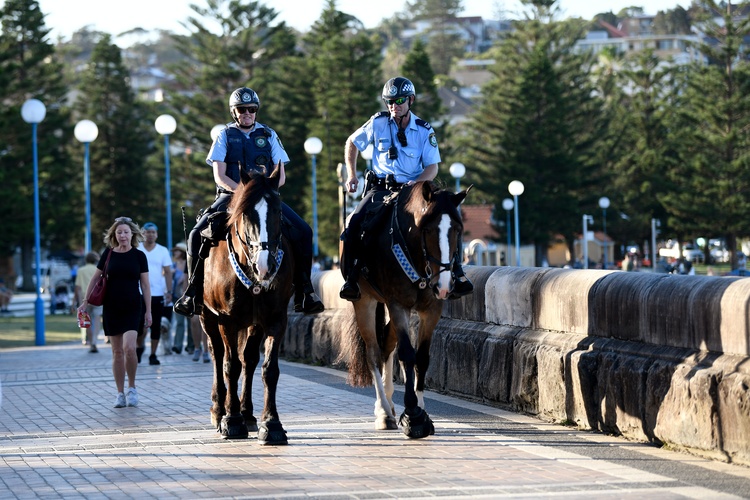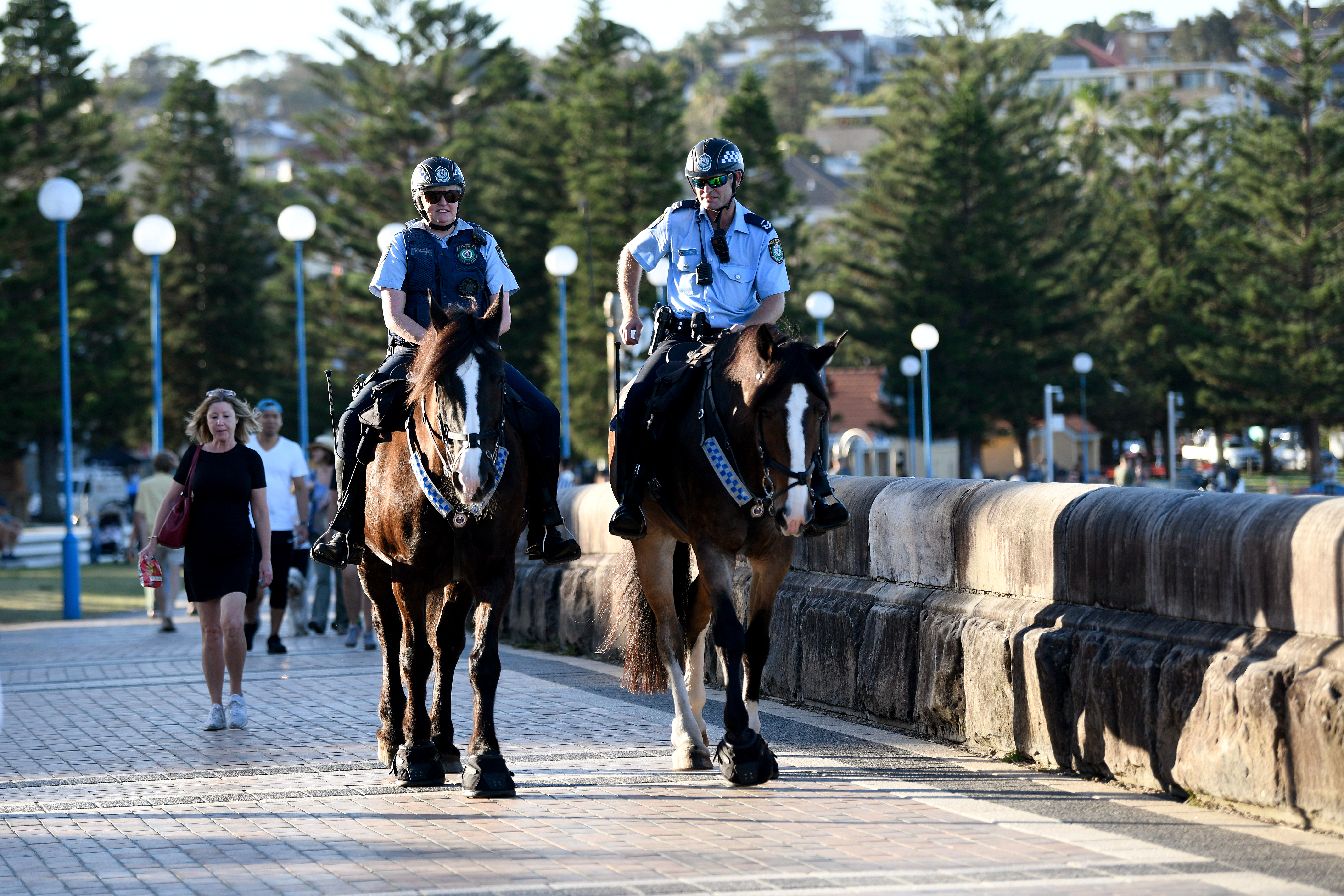But not all jurisdictions are willing to relax restrictions just yet.
So what are the laws in your state or territory as they currently stand?
These are the laws as of Friday, May 1.
New South Wales
NSW has been hit hardest by the virus and had some of the strictest lockdown laws in the country, but the government announced on April 28 that some restrictions would be relaxed.
From Friday, May 1, two adults and dependent children are allowed to visit another person’s home.
These visits must be for “care” reasons, however, the NSW definition or care will be significantly broadened.
The government has confirmed that visiting friends would be considered beneficial for mental health and would, therefore, constitute “care”.
There are no limits on how many guests someone is allowed per day as long as there are no more than two adults at a time.
Premier Gladys Berejilklian has also encouraged retails stores to re-open and NSW residents to shop as long as they observe social distancing.
While the number of people allowed in a home has been increased, the two-person gathering limit remains in place when in public spaces.
Other than these changes, residents are still required to stay in their homes unless they have a “reasonable excuse” for going out.
“Reasonable excuses” are broadly categorised as:
- Obtaining food or other goods and services
- Travelling for the purposes of work or education if the person cannot do it at home
- Exercise
- Medical or caring reasons
- Changing residence
The full list of reasonable excuses can be found here.
People who are learning to drive can continue to learn to drive and get their hours logged.
Children who live across two households can continue to switch between houses.
Victoria
Victoria has a higher community transmission rate than NSW and the state remains in lockdown.
On April 28, Premier Daniel Andrews told reporters the situation was “fragile” and he didn’t want to relax restrictions too early and see a spike in cases.
Currently, residents can only leave the house for one of five essential reasons:
- Shopping for food or other essential goods and services
- Work and education
- Care and compassionate reasons
- Exercise
- Other extenuating circumstances
A detailed outline of the laws can be found here.
The two-person gathering rules apply inside and outside the home.
This rule exempts people who live in the same household, whether this be a family unit or roommates.
Chief Health Officer Dr Brett Sutton tweeted that exemptions would be made for visiting romantic partners.
Victorians cannot visit family members who do not live with them, but may drop off food and supplies for care and compassionate reasons.
Children who may need to move between the houses of their parents or carers are also allowed to travel, and court-ordered visitation rights for parents can also be upheld.
Queensland
Queensland was one of the first states to announce an easing of restrictions.
Previously residents were only allowed out of their home for one of eight essential reasons, including obtaining essential goods or services, receiving medical attention or caring for family members.
However, on April 25, Premier Annastacia Palaszczuk announced that Queenslanders would be able to shop for non-essential items from Friday, May 1.
Picnics and weekend drives are now allowed, and national parks will reopen.
However, residents must not travel further than 50 kilometres from their homes, and the “two-person rule” still applies.
This means if someone leaves their house they can be joined by only one other person or the members of their household, and physical distancing requirements must still be observed.
Inside the home, a household is allowed two additional guests, while those who live alone are allowed two social guests.
Queensland’s borders remain closed to everyone except residents and essential workers, including freight carriers and emergency workers.
There are some exemptions for those who regularly cross the Queensland-NSW border for work.
Tasmania
The strict lockdown measures imposed on the state’s north-west will be lifted by Monday, May 4.
Additional restrictions were placed on the region due to a coronavirus cluster among health workers, which was traced to the ill-fated Ruby Princess cruise ship.
All businesses were closed except for medical services, while the North West Private Hospital was also ordered closed.
Premier Peter Gutwein said the local, additional restrictions will be lifted, but the state will continue to have its existing restrictions.
The state has adopted similar measures to Victoria and NSW with individuals only allowed to leave their homes for essential reasons and gatherings limited to two people.
However, there is more scope for exemptions from these rules than in other states.
Reason for Tasmanians to go out in public include:
- Shopping for supplies
- Undertaking personal exercise
- Attending medical or healthcare appointments
- Seeking veterinary services
- Providing social support or care to another person
- Attending school or study, if unable to be done at home
- Attending work or volunteering, if unable to be done at home
- Performing essential maintenance or security inspections of other premises owned or occupied by the person
- Attending another location if the person has a reasonable excuse in the opinion of the director of public health
An example of a “reasonable excuse” given by the premier’s office was clearing out a recently deceased relative’s house.
Tasmania also restricts gatherings of more than two people inside and outside the home, but they have a broad definition of “social support”.
This allows families and couples who live apart to visit one another’s homes.
Households are allowed to have two visitors as long as physical distancing requirements can be met.
However, in public, the two-person gathering limit is strictly applied.
Tasmania also requires that all non-essential travellers entering the state quarantine for a period of 14 days.
Western Australia
Western Australia has seen perhaps the most significant easing of lockdown laws, with the state increasing its gathering limits from two people to 10.
Residents are allowed to leave home for recreational activities including picnics, fishing, boating or camping.
This also raises the maximum number of people at a wedding from five to 10.
Open houses and display villages will also be allowed to operate, however public playgrounds, skateparks and outdoor gym equipment will remain closed, and restaurants and cafes will still be restricted to takeaway and home delivery.
The state’s border restrictions remain in place.
These divide the state into nine regions that residents cannot move between without good reason.
Reasons for crossing include:
- Travelling to work
- Attending medical appointments
- Transporting freight
- Accessing groceries or supplies if these are not available in the current region
- Returning home
- Attending school or other educational institutions
- Supporting family members where necessary
- Compassionate grounds
Western Australia maintains a hard closure of its state boarder, with only “exempt travellers” allowed in.
A list of “exempt travellers” can be found here, and includes residents, senior government officials, military personal and a range of essential workers.
Australian Capital Territory
The ACT is the first Australian juristiction to record no known active cases of coronavirus.
Restrictions on gatherings in homes, interstate travel and retail shopping in Canberra will be eased from Saturday, May 2.
From midnight tonight, two adults and children will be allowed to visit people who live in another property.
Canberrans will also be allowed to shop at retails stores for items outside what would be found in a supermarket.
Appropriate physical distancing will still be required.
Northern Territory
Some physical distancing rules will be relaxed in the Northern Territory from Friday, May 1, with Chief Minister Michael Gunner announcing a three-part plan for the easing of the lockdown.
From today, people will be allowed to use public swimming pools, go fishing with friends and play non-contact sports like golf or tennis and visit waterparks, as long as safe physical distancing can be observed.
National parks would also be opened for the Mayday long weekend for camping, swimming and hiking.
The 10-person gathering limit has been lifted for outdoor weddings and funerals.
An unlimited number of people may attend as long as physical distancing can still be observed.
From May 15, some indoor activities will also be allowed, as long as they take less than two hours.
This includes going to the gym, eating at a cafe or restaurant, visiting a museum or undergoing non-facial cosmetic procedures like manicures or tanning.
Bars can reopen but alcohol can only be served with a meal.
Indoor weddings, funerals and religious activities will also be allowed.
From June 5, all businesses will be allowed to reopen as long as they have a COVID-19 plan.
The two-hour limit will be lifted allowing night clubs, cinemas, tattoo parlours casinos and pokies to reopen. However physical distancing must still be observed.
All sporting activities will be allowed to restart from June 5, and spectators will be allowed to attend.
Currently, remote indigenous communities have protections in place to stop non-essential visitors from entering, and quarantine periods for residents returning from community hubs.
The protections will be assessed and potentially lifted on June 18.
The NT currently requires any non-essential travellers to self-quarantine in a hotel for a period of 14 days.
This will not change for now.
South Australia
South Australia has not formally lifted any physically distancing laws, but the state never imposed the strict lockdowns seen in Victoria, NSW or Western Australia.
The government has also welcomed students back into classrooms for term two.
South Australia opted not to enforce new two-person-gathering laws but premier Steven Marshall still urged people to follow these rules.
Social distancing rules must still be followed, and gatherings with less than 10 people indoors must abide by the one person per four square meters rules.
All people entering South Australia are required to self-quarantine for 14 days.












